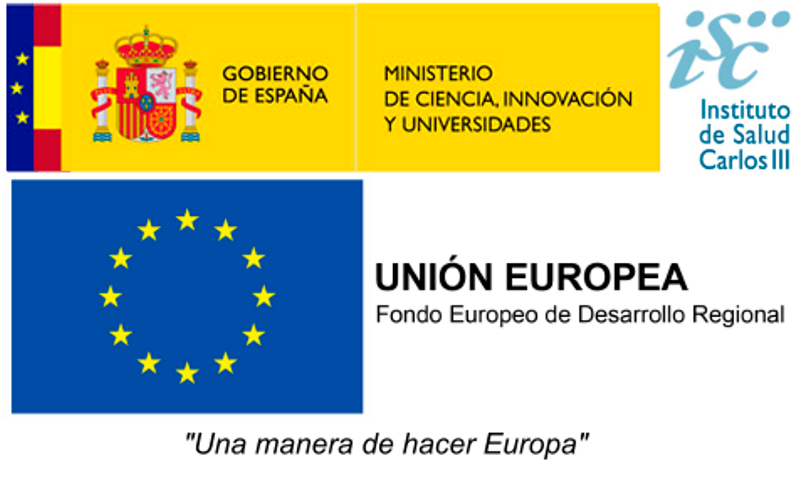Métodos para estimar la duración de la protección conferida por herramientas de prevención de la malaria
Project Code: PI12/02419

- Duration
- 01/01/2013 - 31/12/2016
- Coordinator
- John Jairo Aponte Varon
- Funded by
- Instituto de Salud Carlos III y Unión Europea. Cofinanciado por el Fondo Europeo de Desarrollo Regional (FEDER). “Una manera de hacer Europa”
Tanto las vacunas, que afectan directamente el sistema inmune, como los fármacos antimaláricos, que afectan indirectamente el sistema inmune al modificar la exposición, pueden tener efectos de protección que duran mucho mas que lo que puede ser predicho por los parámetros farmacológicos clásicos como la biodisponibilidad o la vida media.
Diferentes factores afectan la estimación de la perdida de la eficacia y la duración de la misma, como la heterogeneidad de la exposición y de el efecto sobre los individuos, la estacionalidad o la inter-dependencia de los eventos en el análisis de múltiples episodios en un mismo sujeto.
No existe un consenso de cómo estimar la duración de la eficacia y el objetivo de este proyecto es desarrollar y evaluar nuevos métodos estadísticos para la estimación de la duración de la protección conferida por herramientas de prevención de malaria que se puedan utilizar en el análisis de ensayos clínicos.
Financiación
12.500 €

Our Team
Other projects
See Past ProjectsNHEPACHA
New Tools for the Diagnosis and Evaluation of Chagas Disease
RTS,S Vaccine Immunology Study
Study of immune correlates of protection against malaria after vaccination with RTS,S/AS01E: a comprehensive immunological arm of a Phase III double-blind, randomized, controlled multi-center trial
Euroleish.net
Control of Leishmaniasis. From bench to bedside and community
GREPIMER
Grup de recerca en patología importada i malaties emergents i re-emergents
TESEO
New chemotherapy regimens and biomarkers for Chagas Disease
ASINTMAL
Unravelling Disease Tolerance and Host Resistance in Afebrile 'P. falciparum' Infections: a Prospective Study in Mozambican Adults
ADAM
Malaria mass and focal drug administration to advance malaria elimination in Mozambique: accelerating programmatic implementation and policy translation
MULTIPLY
MULTIple doses of IPTi Proposal: a Lifesaving high Yield intervention
Science4Pandemics
Citizens engagement digital platform for collective intelligence in pandemics
HIDDENVIVAX
Novel organ-on-a-chip technology to study extracellular vesicles-mediated cryptic infections in Plasmodium vivax malaria
Subclinical Infections in Children and Long Term Health Effects
Infection acquisition in early life and health outcomes in childhood - MARATO TV3
Herramienta innovadora de detección de enfermedades y vacunación a población inmigrante en riesgo en España
Project Code: PI21/00651
Impacto de las coinfecciones en el balance de respuestas de anticuerpos y linfocitos T helper a antígenos diana de inmunidad natural y vacunal frente a patógenos humanos prominentes
Project Code: PI20/00866
EpiGen
Building Scalable Pathogen Genomic Epidemiology in Ethiopia
MalTransc
Transcriptional regulation of adaptation and developmental decisions in malaria parasites: from epigenetic variation to directed transcriptional responses
BOHEMIA
Broad One Health Endectocide-based Malaria Intervention in Africa
RESPONSE
Mechanisms of the transcriptional responses to changes in the environment in the malaria parasite Plasmodium falciparum
VivaxEVTalk
Extracellular Vesicles as Intercellular Communicators and Biomarkers of Cryptic Erythrocytic Infections in Plasmodium vivax malaria
VaMonoS
Unravelling the heterogoneity and function of monocytes in vaccination and immunity to malaria
CLIMSOCTRYPBOL
Insight on climate and social participatory research for integral management of vectorborne zoonosis caused by Trypanosoma cruzi and Leishmania spp. in the Bolivian Gran Chaco.
SexMal
Social affairs and sex in P. falciparum: implications for malaria elimination
MENA Migrant Health
Transforming data collection and surveillance to drive migrant health research, care and policy
MESA
Sharing knowledge and catalyzing research towards a malaria-free world
GenMoz
P. falciparum genomic intelligence in Mozambique
SMART
Identifying Severe Malaria with a new Aptamer-based Rapid diagnostic Test



